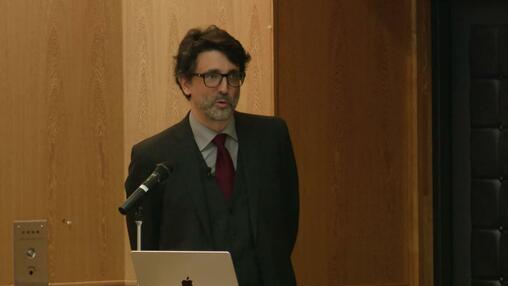
|
|
モデルは重要だ。科学者はモデルを組み立て、検証し、修正することに多くの時間を費やす。そして、多くの論文の重要な部分はそれらの特徴を調べることに関わる。我々の議論は3つの種類のモデル(表象モデル、理論のモデル、データモデル)を区別することからはじまる。本講義の焦点は表象モデルである。これらのモデルは世界のある選択された部分や側面、つまりターゲットシステムを表す。このことは「モデルがターゲットシステムを表象するとは何を意味するのか」という問いを引き起こす。この問いに答えるために、我々は表象のDEKI説を導入する。グッドマンとエルギンによる「as表象」という概念にDEKIの起源を求めることからはじめ、その中心要素(指示、例示、Z表象とZの表象との違い)を詳しく説明する。そして、科学モデルに目を転じ、モデルが表象する仕方を説明するために必要なさらなる要素(解釈、解釈のもとでの例示、キーを通じた転嫁)を導入する。これは表象のDEKI説へ導くが、それは中心要素(指示、例示、キー・アップ、転嫁)にちなんで名付けられている。そして、将来の研究の焦点になりうるDEKI説の7つのオープンクエスチョンを議論する。
Models matter.Scientists spend substantial amounts of time building,testing and revising models,and significant parts of many journal articles are concerned with exploring their features.We begin our discussion by distinguishing between three different kinds of models: representational models,models of theory,and data models.The focus of this lecture are representational models.These models stand for a selected part or aspect of the world,their target system.This raises the question what it means for a model to represent a target system.We introduce the DEKI account of representation to answer this question.We begin by tracing the origins of the DEKI account in the notion of “representation as” due to Goodman and Elgin,and we spell out its core elements: denotation,exemplification,and the difference between a Z-representation and representation of a Z.We then turn to scientific models and introduce the additional elements that are needed to explain how models represent: interpretation,exemplification under an interpretation,and imputation via a key.This leads to the DEKI account of representation,which is named after its core elements: denotation,exemplification,keying-up,and imputation.We then discuss seven open questions for DEKI that can be the focus of future research.
‘Understanding Scientific Representation’,keynote lecture of the conference ‘Science and Model’,Hokkaido University,February 2023.
—
科学哲学シンポジウム「科学とモデル」
キーノートレクチャー
開催:2023年2月22日(水)
場所:北海道大学
主催:科研費研究(基盤研究 B)「統計学的観点を加味した科学哲学による「科学的推論」教育プログラムの構築」(課題番号:20H01736)
‘Understanding Scientific Representation’,
keynote lecture of the conference ‘Science and Models’,
Hokkaido University,February 2023.
|
教員:
ローマン・フリッグ(ロンドン・スクール・オブ・エコノミクス)/Roman Frigg (London School of Economics and Political Science) |
開講年:2023
|
タグ:
Literature/Thought/Language, Physical Sciences/Natural Sciences |
講義投稿日:2024年1月10日 |

|
|
理系や文系に関係なく、科学リテラシー確立のためのコースであり、科学者になるためのコースではありません。このコースでは、主に物理と化学を学び、力と物質について理解しましょう。
また社会問題などにあらわれる地球温暖化や放射性廃棄物の問題は、人間の決めた分野で言うと、物理、化学、生物、地球物理にまたがっています。このため、これらの問題を議論するときには総合的な科学的知識が必要となります。そうした総合的な知識を得るためには、統合的なサイエンスのコースが最も適しています。このコースでは自然科学1および自然科学2で自然科学のすべてを概観できるようになっています。またこれにより自然界の構造的理解が明確にできるようになるでしょう。予備とする基本的な知識も必要ありませんので文系でも安心して受講できます。また、理系学生でもサイエンス全般にわたっての理解や、サイエンスとは何かを知っておくことは重要です。このコースでは、サイエンスに対しての知識と、大局的な理解を目指します。
この授業は、アメリカでその重要性が認識され、現在広く行われている統合的科学授業に基づいています。日本では、このコースが最初の試みとなりますが、世界標準の内容に基づきますので安心して受講してください。
科学・技術の世界 ゼロからはじめる「科学力」養成講座2(2009年度)
|
教員:
鈴木 久男 (北海道大学理学研究院) |
開講年:2009
|
タグ:
General Education Courses, japanese, Physical Sciences/Natural Sciences, School of Science, Search by Undergraduate School |
講義投稿日:2017年8月9日 |


